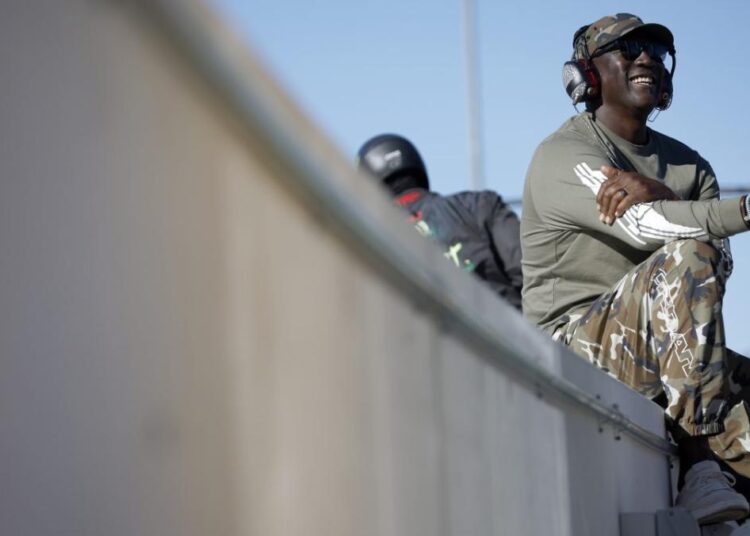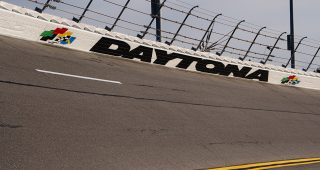NASCAR on Wednesday filed a 68-page brief to the U.S. Court of Appeals for the Fourth Circuit urging the appellate court to reverse preliminary injunctions granted to 23XI Racing—owned by Michael Jordan and Denny Hamlin—and Front Row Motorsports by U.S. District Judge Kenneth D. Bell on the grounds that Bell misapplied the law and misunderstood the facts.
The brief—authored by Gregory G. Garre and other attorneys from Latham & Watkins and Shumaker, Loop & Kendrick—centers Bell’s rulings in December. That month the judge barred NASCAR from denying 23XI Racing and Front Row the same terms offered to charter teams, prevented NASCAR from requiring 23XI Racing and Front Row release legal claims, and allowed a purchase of Stewart-Haas Racing charters. NASCAR contends Bell’s orders “flout federal antitrust law” and “ignore unrebutted, legally significant evidence.” The association also accuses Bell of “forcing” NASCAR “into contractual relationships with two motorsports organizations actively suing it, on their preferred terms.”
More from Sportico.com
23XI Racing and Front Row sued NASCAR and CEO Jim France last year, accusing them of violating antitrust law by functioning as an illegal monopsony. The gist of the case is that NASCAR allegedly has too much control over the buying of the services of premier stock car racing teams. NASCAR is portrayed as using that control to force teams to accept unfavorable terms through its charter system.
Charters guarantee teams a starting position in NASCAR-sanctioned races while limiting their capacity to compete in other circuits. Charters also require NASCAR and the teams to mutually release potential legal claims against one another.
From NASCAR’s vantagepoint, charters are negotiated agreements with teams that give them a “valuable asset that can be sold for a profit.” Charters are also depicted as helping to make NASCAR popular and a reliable promotion for television networks and other media rights partners. This is because charters ensure that teams will race in scheduled events, much like PGA Tour contracts require golfers to compete for PGA Tour events. That guarantee assures networks which teams will compete, which is crucial for the selling of advertising.
NASCAR says an ecosystem where charter teams compete in its races helps make the sport popular with fans and generates more revenue for NASCAR and teams.
23XI Racing and Front Row refused to sign charters last year and sued. Last November, the first judge in the case, Frank D. Whitney, denied 23XI Racing and Front Row a preliminary injunction on grounds the teams’ alleged harms were speculative and unsupported. But on Dec. 11, the case was reassigned to Bell, who soon granted the two teams’ injunctive relief. Bell was convinced drivers and sponsors might sever relationships with 23XI Racing and Front Row, though in granting relief, Bell arguably gave those two teams a superior arrangement with NASCAR than enjoyed by charter teams.
NASCAR argues that Bell’s decisions defy basic elements of law and compelled NASCAR “to enter into rewritten Charters with the parties actively suing it, despite the absence of any meeting of the minds on key contractual terms.” The judge is also portrayed as undermining foundational rules of American sports law and longstanding precedent. Bell allegedly “conjured from thin air a categorical ban on sports leagues including releases broad enough to encompass antitrust claims in their agreements” which “no court of appeals” has ever endorsed.
NASCAR also challenges the plaintiffs’ depiction of the association as a monopsony. NASCAR stresses that the motorsports industry also includes Formula 1, the IndyCar Series, the IMSA SportsCar Championship, drag racing leagues and the Formula Drift championship series. NASCAR asserts it has “consistently faced competition” for “fan attention, talent and sponsors” and many of its drivers have raced in other motorsports leagues, including IndyCar, Formula 1, the U.S. Auto Club and others. NASCAR also maintains that it competes with the major sports leagues and the NCAA, noticeably underscoring that Jordan “has held ownership stakes in MLB, NBA, and NASCAR teams, a motorcycle racing team, restaurants, and car dealerships.”
NASCAR uses those points to argue that it faces substantial competition in the racing and sports industries, and that Bell “erred by ignoring that evidence.” The judge, as NASCAR tells it, incongruously defined the market as limited to the relationship between teams and NASCAR.
The brief filed by NASCAR also implies that Bell fumbled the handoff of the case from Whitney. NASCAR finds it problematic that soon thereafter Bell granted a preliminary injunction “without holding a hearing or allowing Defendants an opportunity to respond” to a request about a charter. NASCAR also points out that Bell’s order went further than 23XI Racing and Front Row sought, providing “additional relief never even requested” in the form of ordering NASCAR to approve 23XI’s purchase of a charter from Stewart Haas.
NASCAR’s brief presents only one side of the debate. 23XI Racing and Front Row will file an opposition brief in which they will describe Bell, who last month denied NASCAR’s motion to dismiss the case, as correctly applying the law and cogently understanding the facts. It will be a while before the Fourth Circuit acts: the court is scheduled to hear oral arguments in May.
In the meantime, races will continue. The Daytona 500 will take place this Sunday with 23XI Racing and Front Row scheduled to participate.
Best of Sportico.com
Sign up for Sportico’s Newsletter. For the latest news, follow us on Facebook, Twitter, and Instagram.
Read the full article here



























Discussion about this post